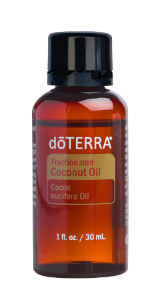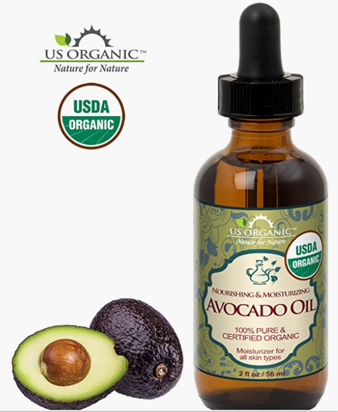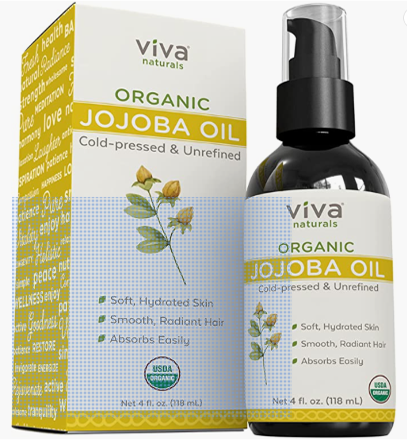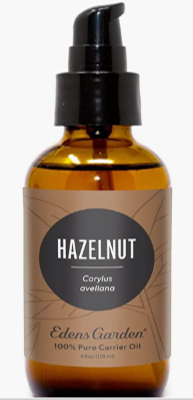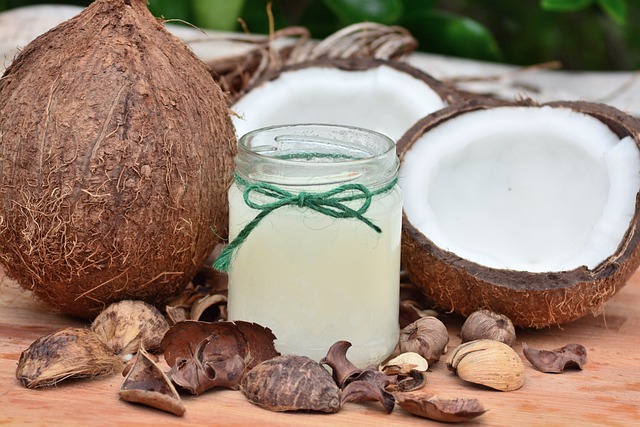SUBSCRIBE TO MY FREE ESSENTIAL OILS NEWSLETTER, "THE ESSENTIAL OILS Rx"
Which Oils Can You Use as Carrier Oils
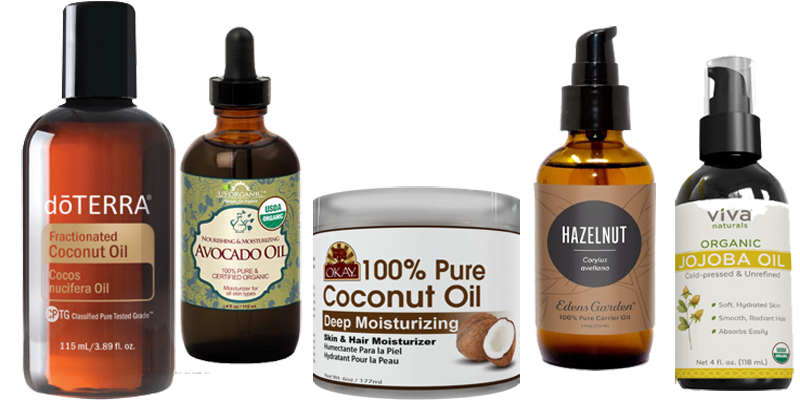
Carrier oils are often used in combination with essential oils. In addition to diluting the essential oil making it safer for use on sensitive skin and improving it's absorption, carrier oils offer some unique benefits of their own.
Virtually any food grade oil can be used as a carrier oil, but some oils are more popular than others. In this article I go over some of the oils that are most often used as carrier oils and highlight the properties and main benefits of each. To learn more about carrier oils in general, including how to purchase and store them click on this link: Benefits of carrier oils.
Popular Carrier Oils
Popular carrier oils include Fractionated Coconut Oil, Avocado Oil, Jojoba Oil, Hazelnut Oil and regular Coconut Oil.
Fractionated Coconut Oil (FCO)
Obtained by removing the long chain fatty acids from regular coconut oil, fractionated coconut oil (FCO) is probably the most popular and commonly used carrier oil. Unlike regular coconut oil, FCO is colorless, odorless and is a liquid even at cooler temperatures.
Fractionate coconut oil is a thin oil that penetrates the skin easily, does not clog pores and is suitable for all skin types.
It also is non-staining and has a long shelf life: While regular coconut oil has a shelf life of 2 years, FCO oxidizes slowly, if at all, and can last indefinitely.
The process of fractionating coconut increases the concentration of caprylic and capric acid in the oil.
These acids act as emollients that soften the skin while forming a protective layer that helps lock in moistures. In addition, they have anti-microbial, anti- fungal, and anti-oxidant activity. The anti-oxidant activity helps protect the skin from damage by free radicals.
FCO is neutral oil that can be combined with any essential oil. It is a good choice for massage blends and it’s thin consistency makes it ideal for use in roller bottle recipes.
Properties:
- A thin liquid even at cooler temperatures
- Odorless, colorless, non-staining
- Use with any skin type including sensitive, inflamed and acne-prone skin
- Non-comedogenic: Can be used on the face
- Shelf life: Lasts indefinitely when kept in a cool, dark environment.
Marketing Tip
Because it has a very long shelf life, benefits all skin types, is non-comedogenic and has some great benefits of its own, if you want to use and sell just one carrier oil in your office, I suggest you invest in fractionated coconut oil
Avocado Oil
This is one of my favorite face and hand oils. I typically use it several times a day – either alone or with oils known to help with cellular regeneration such as frankincense and helichrysum.
Rich in vitamins A, B, D, E, beta carotene and monounsaturated fats, avocado oil is a deeply penetrating oil that can enhance the penetration of other oils,
.Avocado oil is thicker than FCO and provides significant hydration for the skin. It also encourages cellular regeneration, reduces the appearance of wrinkles, and may improve skin elasticity. These properties make avocado oil especially beneficial for mature, very dry or fragile skin.
When purchasing avocado oil look for oils that are dark - the darker the better. Clear oil or pale green color is an indication the oil has been refined and highly processed.
Properties:
- Thicker oil with a heavier feel than some carrier oils
- May partially block UV rays – good for use outdoors
- Slightly fruity smell
- Appropriate for all skin types but especially for very dry, mature or sun damaged skin
- Shelf life. 1-2 years if unopened and kept in a cool dark place: Should be discarded 6 months after opening. Add additional vitamin E to this oil to extend this oil's shelf life.
Jojoba Oil
Made from the nut of the Jojoba plant, Jojoba oil is actually a liquid ester that is similar to the sebum in our skin.
Jojoba oil is antibacterial and may stimulate collagen production. It is used help prevent stretch marks and to speed healing of minor wounds and burns. When used on the hair it can increase luster, decrease scalp dryness and encourage healthy hair growth.
Jojoba oil is rapidly absorbed, and suitable for all skin types. It reduces excess production of sebum making it particularly beneficial for oily and acne prone skin.
Because it contains a natural form of vitamin E, jojoba oil also has a very long shelf life and can help slow the rate of oxidation when added to other carrier oils.
Properties:
- Non-comedogenic: Reduces sebum production
- Use for oily, blemish-prone, and reddened skin
- Antibacterial
- May enhance collagen production
- Helps prevent stretch marks and heal minor wounds and burns
- Long shelf life - can slow the rate of oxidation of other carrier oils when added to them.
Hazelnut Oil
As it’s name implies Hazelnut oil is made from hazelnuts. Hazelnut oil It has appreciable amounts of vitamins A, B, and E, as well as essential fatty acids. It is both moisturizing and rejuvenating to the skin.
Hazelnut oil is also a great skin toner, and powerful astringent: It helps tighten the appearance of skin and to dry oily skin, making it a great choise for those with acne prone and mature skin.
Hazelnut oil should not be used by those with a a nut allergy.
Properties
- Moisturizes and rejuvenates the skin
- Helps tighten the skin - useful for mature skin
- Helps dry oily skin
- Shelf life of 6-8 months when properly stored
Coconut Oil
Derived from the meat of the coconut, coconut oil is a natural moisturizer with many skin benefits. It softens and moisturizes the skin and can be used on dry, inflamed, sensitive or itchy skin.
Coconut oil is often used in sunscreens because it can block an estimated 20 percent of the sun’s UV rays, making it a good choice for those engaging in outdoor activities.
Coconut oil is solid or semi-solid at room temperature but melts easily when applied to the skin. It can also be melted over low heat, mixed with essential oils, cooled to form a cream, and then placed in the refrigerator to keep it solid.
Coconut oil is useful as a body moisturizer. However, because it can clog pores, it is not a good choice for use on the face, especially for those with acne prone skin.
Properties
- Solid or semi-solid at room temperature. Can be melted, mixed with essential oils and then stored in the fridge.
- Natural UV blocker.
- OK for inflamed, itchy or sensitive skin
- Not recommend for use on face, especially if acne-prone.
- Smells like coconut!
- Shelf life – 2 years
Next in the Series on Essential Oil Basics

How to Dilute Essential Oils. Diluting essential oils with a carrier oil makes the essential oil safer to use on sensitive skin.
You need to dilute certain essential oils before applying them to the skin, and you always want to dilute them when applying them topically on young children, dogs and cats.
To learn how to dilute essential oils click on this link: How to dilute essential oils.

Want to try doTERRA essential oils or essential oil products?
Click on this link to get a FREE membership and WHOLESALE prices for a full year! Get My Free doTERRA Membership.
